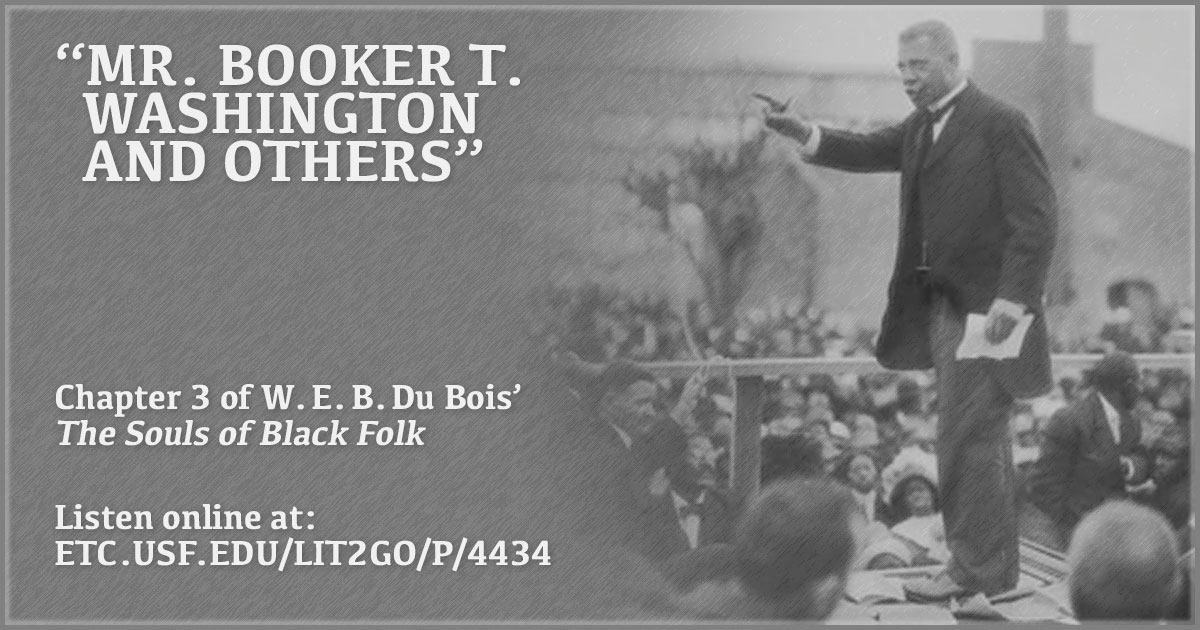Souls Of Black Folk Chapter 1 Summary
The Souls Of Black Folk: Chapter 1 Summary
The Souls Of Black Folk is a renowned book written by W.E.B. Du Bois, which delves into the experiences and struggles of African Americans during the post-Civil War era. In Chapter 1, titled "Of Our Spiritual Strivings," Du Bois introduces various thought-provoking concepts. Let's explore a summary of this chapter and gain insights into the significance of his words.
Summary:

In Chapter 1, Du Bois presents a gripping introspection into the psychological impact of racial discrimination on African Americans. He explores the notion of double consciousness, which refers to the internal conflict of African Americans who possess both a self-identity and a perception shaped by societal expectations.
The Concept of Double Consciousness

Du Bois powerfully argues that African Americans in the United States at that time faced a unique challenge. They were forced to view themselves through the eyes of both white and Black communities, leading to a fragmented self-perception. He describes it as a "twoness" or "double consciousness" that hinders Black individuals' quest for true selfhood and self-identity.
Impact on Cultural Contributions
Du Bois further discusses how this double consciousness affects the cultural contributions of African Americans. He emphasizes that the society's expectations and prejudices force them to suppress their authentic expressions and conform to the norms dominated by the white majority. This stifling of creativity and individuality results in the loss of unique perspectives and innovative contributions to societal growth.
FAQ
Q: How does double consciousness affect the daily lives of African Americans?
A: Double consciousness creates a constant struggle within African Americans to reconcile their true sense of self with societal expectations. It often leads to feelings of being torn between two identities, resulting in a persistent internal conflict.
Q: How can society address the issue of double consciousness?
A: To address this issue, society must promote inclusivity, empathy, and equal opportunities for all individuals, regardless of their race or ethnicity. By creating an environment that embraces diversity and values every individual's unique experiences, we can help eliminate the burden of double consciousness.
Q: What is the relevance of Du Bois' concepts in contemporary times?
A: Despite the book being published over a century ago, the concepts presented by Du Bois continue to hold relevance today. They shed light on the ongoing struggle for racial equality and prompt us to reflect on the societal constructs that influence our perspectives and hinder the progress towards a more inclusive and equal society.
Similar Topics to Souls Of Black Folk Chapter 1 Summary
If you found the summary of The Souls Of Black Folk Chapter 1 insightful and are interested in exploring related topics, here are a few recommendations:
- The Legacy of Slavery on Modern Society
- The Role of Education in Empowering Marginalized Communities
- African American Civil Rights Movements: Past and Present
Social & Health Issues The Souls Of Black Folk Annotated Cultural
 Image Source : kensingtonstobartgallery.com
Image Source : kensingtonstobartgallery.com The Souls Of Black Folk, Chapter One Crossword - WordMint
 Image Source : wordmint.com
Image Source : wordmint.com Chapter 3: Of Mr. Booker T. Washington And Others | The Souls Of Black
 Image Source : etc.usf.edu
Image Source : etc.usf.edu The Souls Of Black Folk | W. E. B. Du Bois | Lit2Go ETC
lit2go etc
Summary And Notes: The Souls Of Black Folk By W.E.B. Du Bois
The Souls Of Black Folk Chapter 3 - Novelist
 Image Source : www.novelistg.art
Image Source : www.novelistg.art The Souls Of Black Folk Summary And Analysis (like SparkNotes) | Free
 Image Source : www.freebooknotes.com
Image Source : www.freebooknotes.com W.E.B.Du Bois The Souls Of Black Folk Chapter 1 Summary In Hindi - YouTube
 Image Source : www.youtube.com
Image Source : www.youtube.com The souls of black folk, chapter one crossword. The souls of black folk. Lit2go etc. Summary and notes: the souls of black folk by w.e.b. du bois. The souls of black folk summary and analysis (like sparknotes)